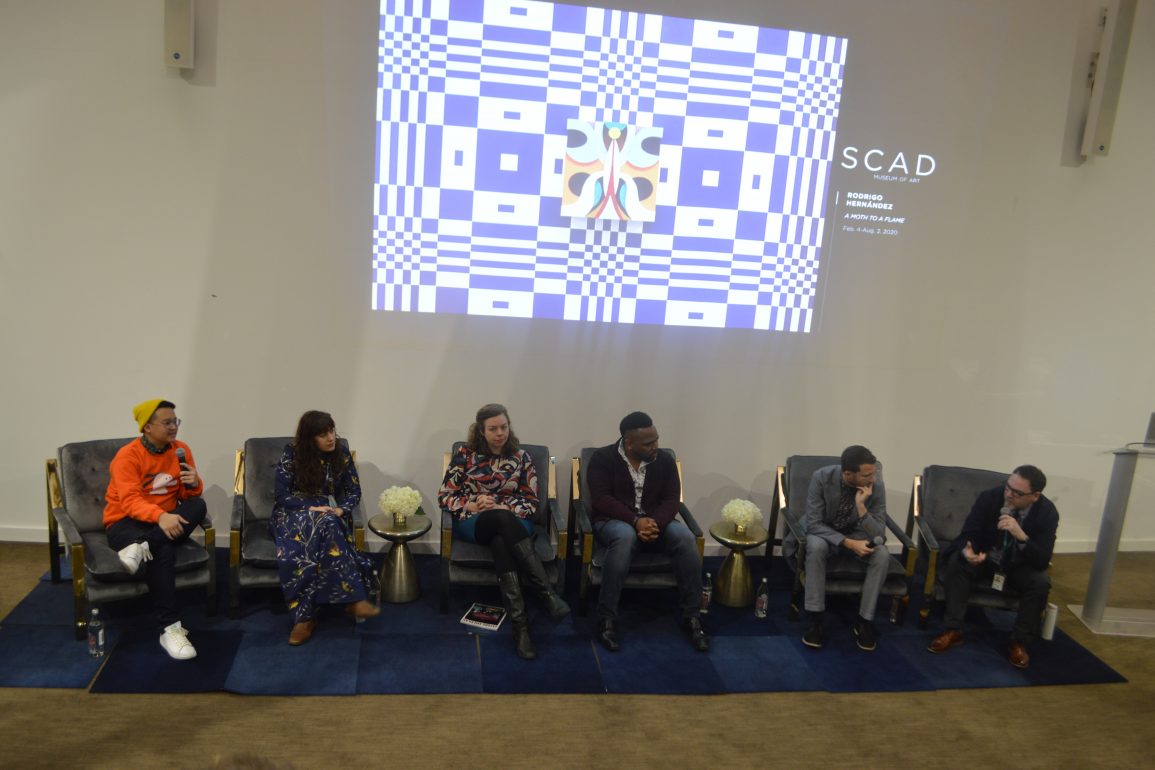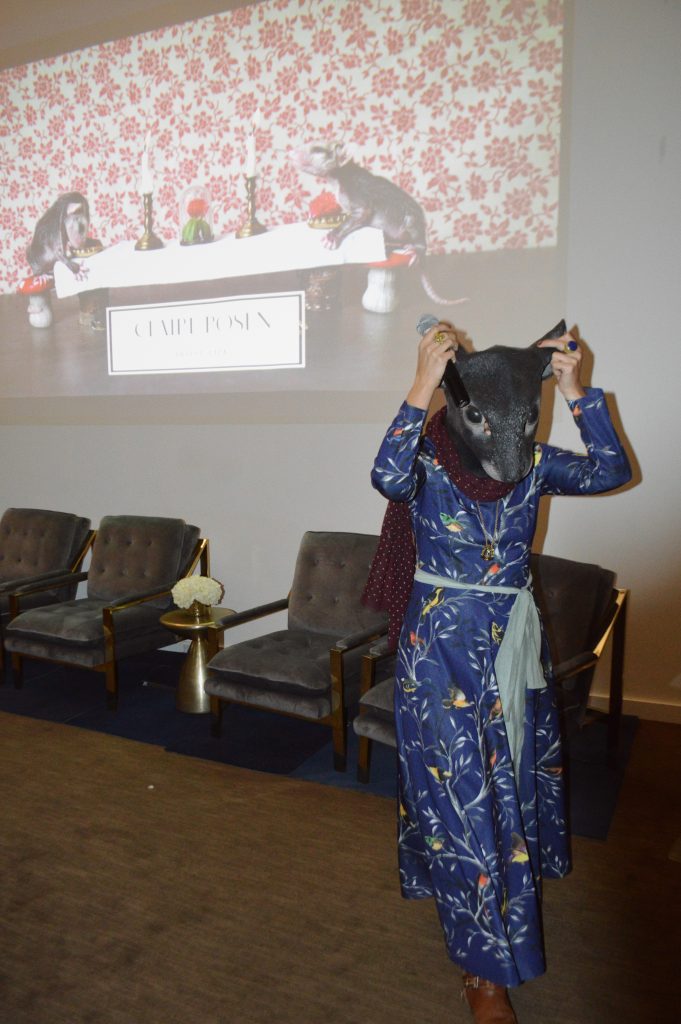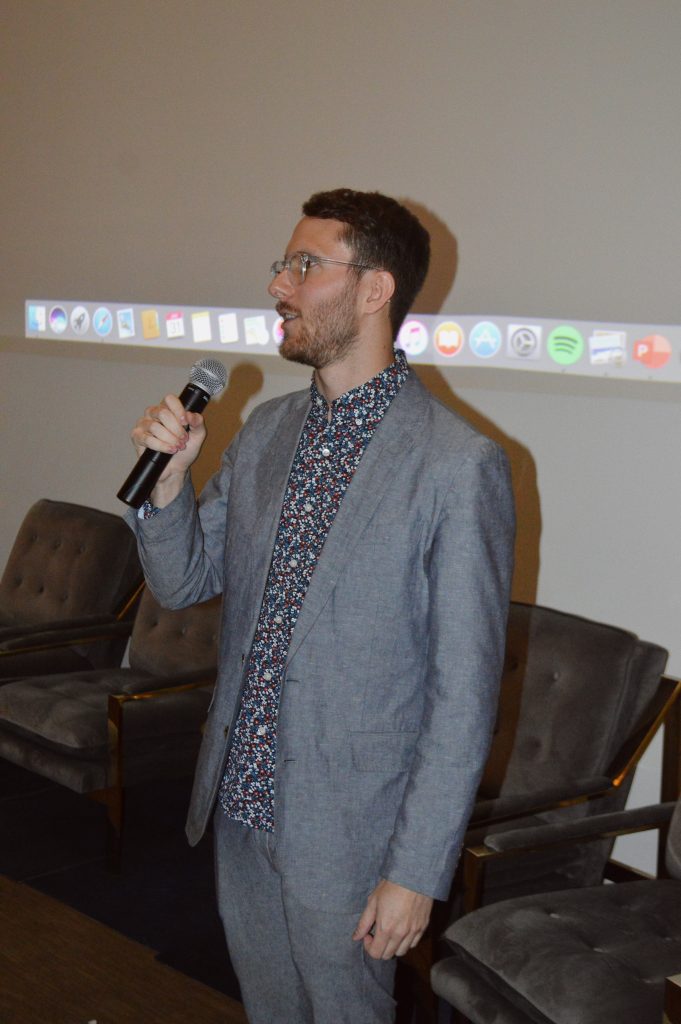Who are you as an artist? Do you have a strong, stylistic voice? Do you prefer commercial work or fine art?
Guest speakers Claire Rosen and Daniel Poler shared their experience in answering these reflective questions during the WordCast panel this past Friday. Both Rosen and Poler are SCAD alumni and are quite successful in their respective fields of work. Poler: the creative director of Condé Nast Entertainment (CNE), and Rosen: an internationally recognized fine-art photographer.
Processed with VSCO with fp2 preset Processed with VSCO with fp2 preset
“Don’t think of luck as chance; luck is when preparation meets opportunity.”
Poler began his presentation by sharing this quote from the early days of his career. He detailed his journey from his early filmmaking days in Venezuela to receiving a scholarship at SCAD. Poler admitted to initially starting with a poor attitude towards the seemingly basic skills being taught in the Film 101 class.
That attitude soon changed, however, when he began to expand his skillset and work on senior theses. These projects exposed Poler to a truly collaborative environment. He soon learned that the best projects were those with the most dedicated teams. Poler then began working with more people, producing at least one short film per quarter. His focus shifted from self-importance to group mentality.
“Shoot and learn as much as you can, it is never a bad idea to learn above and beyond what is required.” Poler spoke on the necessity for diversity when it comes to one’s own creative skill set. While at SCAD, he learned the process of editing, production, assistance and more so that he could adapt to nearly any situation. Poler assumed a mentality of “Let me help,” rather than feeling entitled to a successful career after graduating. He seized opportunity and made networking a strong priority.
As the creative director of Condé Nast Entertainment, David Poler maintains responsibility for many aspects of content production. He works with large teams of people to produce quality creations.
When asked about his personal attitude towards a seemingly hierarchical work environment, Poler stressed that everyone’s job is important. He made a point that the best projects are produced when everyone understands the greater importance of their individual job.
As the creative director in these situations he strives to hold “a balance between confidence and humility.” Daniel Poler’s humble and respectful attitude shines through in the way he presents himself and his work.
What do you bring to your table when you create?
During WordCast, Claire Rosen shared her experience of bringing curiosity to her creative process, leaving her expectations behind. “Too much choice can create stress.” Rosen reflected on times when she felt frozen in her creative process. So, rather than remain blocked, she chose to create without setting expectations for what she was creating.
Rosen spoke on exploring her artistic roots and influences. Children’s books, animals and trips to the natural history museum made an impact on the fantastical art she produces today. By creating in a constant flow, she found relief in accepting what she made and where it came from without judging it.
Speaking on her path to becoming a professional fine art photographer, Rosen shared how she interned with Joyce Tenneson in Maine after graduating from SCAD. Continually creating fueled her career path as she exhibited her first show at a small gallery. From this, she made connections that led to her work gaining commercial appeal for book covers. Eventually Rosen started shooting fashion for clients.
Shooting fashion felt different for Rosen. She shared that she often felt a little disappointed with the product after completion. She took this as a calling back to doing what truly fulfilled her. With her series, Birds of a Feather, Rosen created a body of work that fulfilled both her creativity and her career.
Following this series, she began to produce more commissioned work, as well as expressing her passion for environmental conservation. Her current series, The Fantastical Feasts, explores similar themes of wildlife endangerment and conservation. Each photograph is a depiction of the master work The Last Supper, but in place of humans, she photographs animals. A portion of the print sales of each piece is donated back to the conservation of that species.
Rosen ended WordCast with a resounding message of self-compassion. “Whatever the thing you care about is…give presence to it.” She made a point to always give yourself permission to create and to enjoy the process.
Both speakers made a clear point that success looks different for everybody. At the heart of the matter is how you define that for yourself, how you are able to find peace.
Words by Zach Jett
Photos by Sebastian Mendez



